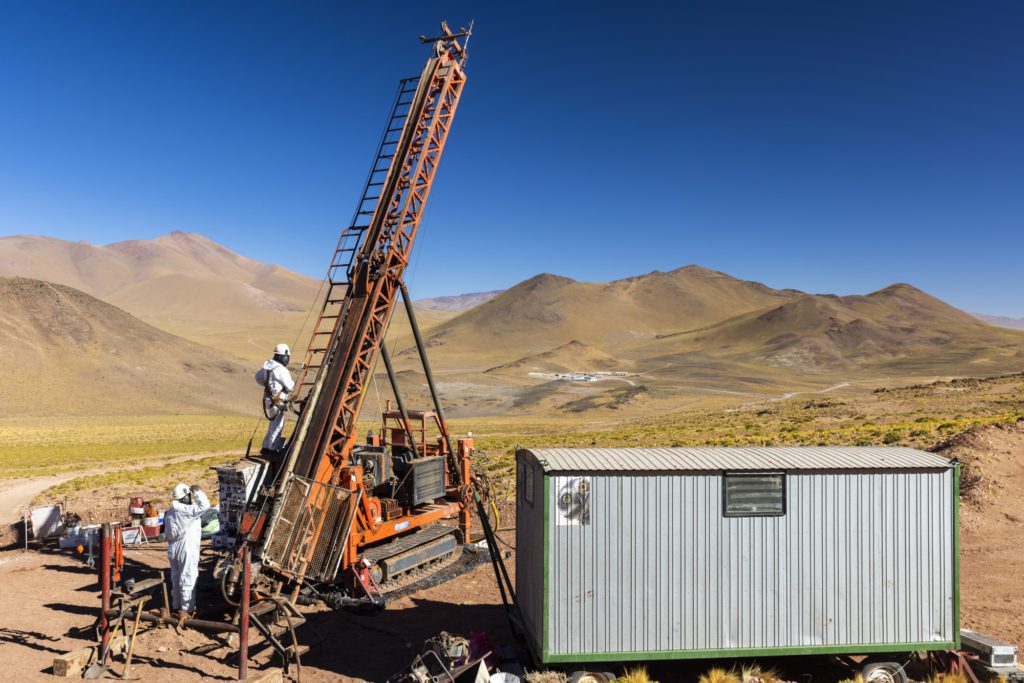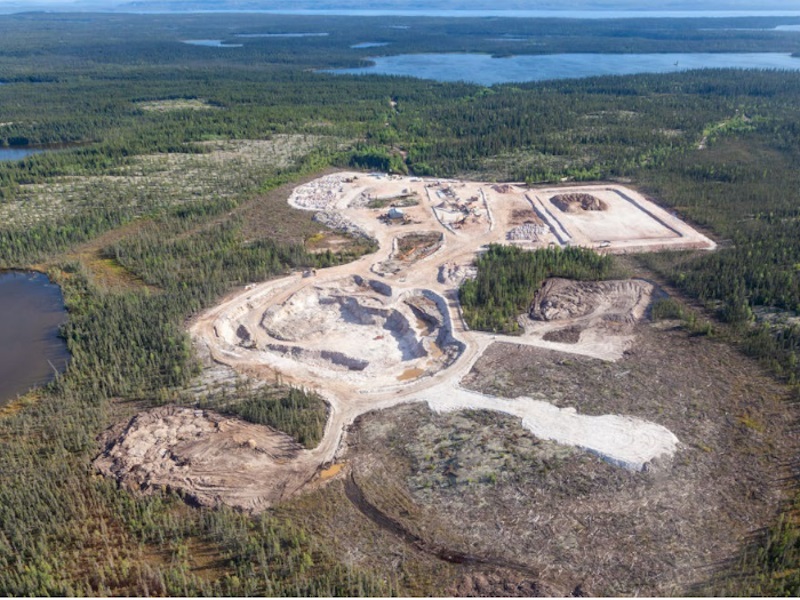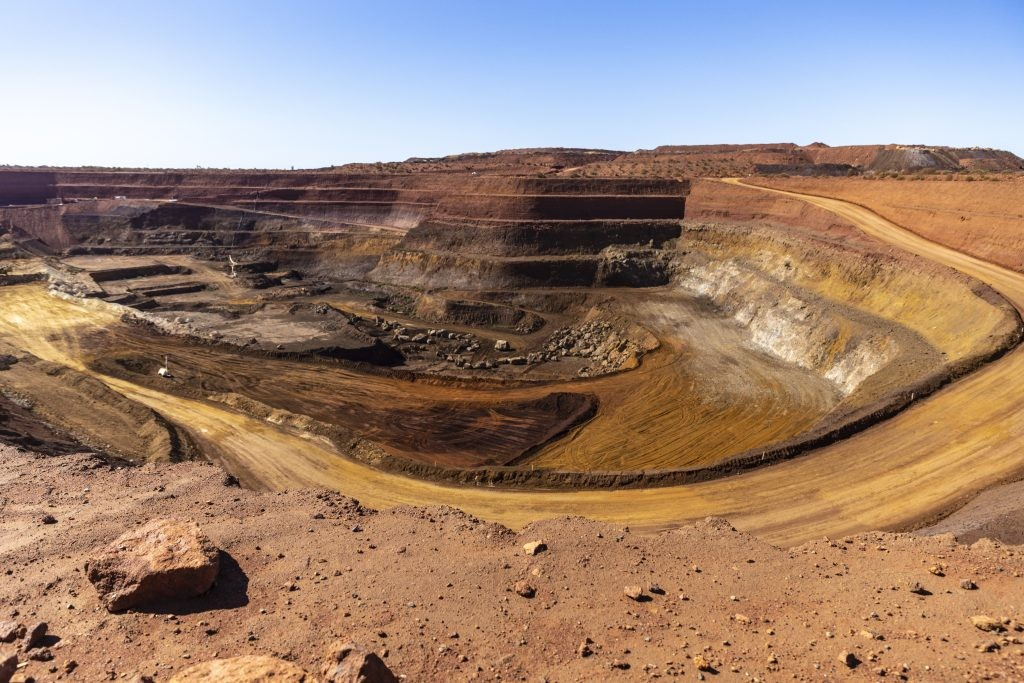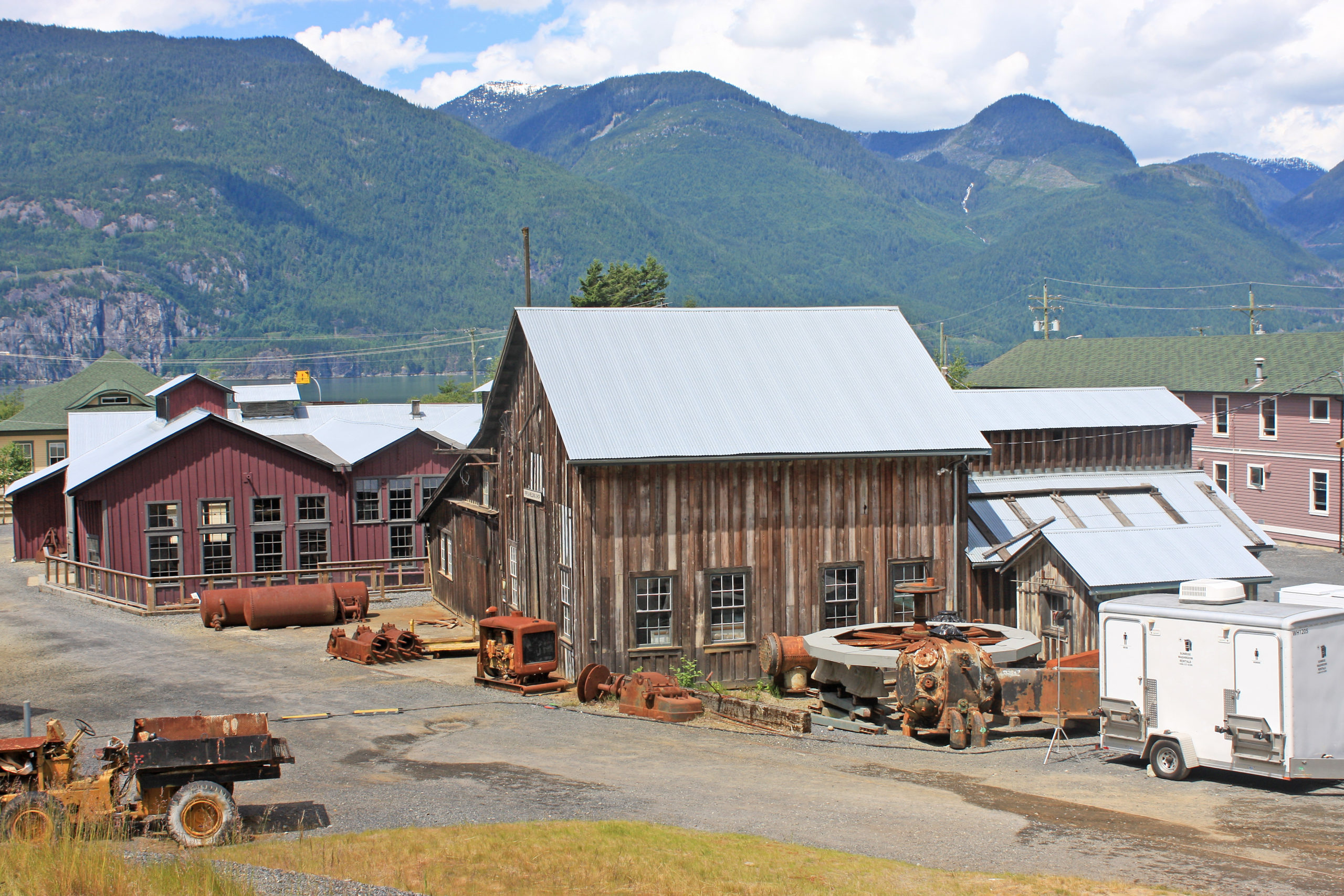The Oculto deposit at Diablillos has measured and indicated resources of 51.3 million tonnes grading 66 grams silver per tonne and 0.79 gram gold per tonne for contained metal of 109.4 million oz. silver and 1.3 million oz. gold.
Notable drill intercepts at Diablillos include 127 metres of 506 grams silver and 1.99 grams gold from 122 metres in hole DDH-22-045; 26 metres of 2,358 grams silver and 0.36 gram gold from 132 metres in DDH 22-015; 103 metres of 389 grams silver and 1.7 grams gold from 141 metres in DDH 20-027; and 155 metres of 186 grams silver and 1.48 grams gold from 71 metres in DDH 20-037.
A year ago, AbraSilver discovered a new area of near-surface high-grade silver in the JAC zone, about 500 metres southwest of the main Oculto resource. The discovery hole intercepted 87 metres grading 346 grams silver and 0.15 gram gold from 89 metres in drillhole DDH- 22-019. The hole included a 22-metre interval of 1,015 grams silver and 0.27 gram gold. At the end of August, the company released final assay results from third phase drilling at the JAC zone including 148 grams silver over 64 metres in DDH-23-070 from 41 metres.
The high-sulphidation epithermal deposit, about 160 km southwest of the city of Salta, sits at an elevation of between 4,100 and 4,650 metres above sea level in the Argentine Puna region — the southern extension of the Altiplano of southern Peru, Bolivia and northern Chile.
The company is planning to complete an updated resource on Diablillos including an initial resource for the JAC zone, along with a prefeasibility study, before the end of the year.
AbraSilver has a market capitalization of $168 million.
Aya Gold & Silver
Pure-play silver producer Aya Gold & Silver (TSX: AYA; US-OTC: AYASF) is the 100% owner and operator of the Zgounder underground silver mine in Morocco, about 260 km east of Agadir. Last year the mine produced 1.9 million oz. silver, and the company’s production guidance for 2023 is 1.7-1.9 million ounces.
Zgounder, which Aya describes as the second most important mine in the country after the Imiter mine, has proven and probable reserves of 8.6 million tonnes grading 257 grams silver per tonne for 70.9 million oz. contained silver.
After a devastating earthquake rocked Morocco on Sept. 8, Aya reported a 24-hour suspension of operations at Zgounder to confirm the mine’s structural integrity, facilities and infrastructure. The company is providing disaster relief and medical support to surrounding communities.
An feasibility study for an expansion of the operation to 2,700 tonne per day forecast strong economics and a quadrupling of production to 6.8 million oz. silver. At the end of June, the expansion work was 45% complete. Current design capacity is 700 tonnes per day.
In addition to Zgounder, Aya is exploring at its Imiter bis project, 5 km south of the Imiter mine and about 150 km from Ouarzazate. Initial field work has identified a potential 4 km at-surface polymetallic structure.
In western Morocco, the company is exploring the Boumadine historic mine and polymetallic deposit, about 240 km from Ouarzazate. The company plans to complete a resource estimate for Boumadine in the first quarter of 2024. The historic operation produced about 261,485 tonnes at 200 grams silver, 3.5 grams gold, 3.8% zinc and 1.5% lead between 1989 and 1992.
In June, Aya Gold & Silver acquired the Tirzzit project, about 25 km from the Zgounder mine. The project includes an historic copper mine with historic drill intercepts of up to 3.5% copper.
The company also owns the Tijirit gold project in Mauritania.
Aya has a market cap of $900.5 million.
Bravo Mining
Bravo Mining (TSXV: BRVO; US-OTC: BRVMF) is advancing its 100%-owned Luanga PGM-gold-nickel project in the Carajas mining district of Brazil’s Para state.
The palladium-dominant deposit, about 40 km east-northeast of Parauapebas, the mining capital of Para, was named a “strategic minerals project” by the Brazilian government in June 2022.
A historic resource outlined 142 million tonnes grading 1.24 grams palladium plus platinum and gold and 0.11% nickel at a cut-off grade of 0.5 gram PGM and gold. Rhodium was not included in the historic resource.
The company describes Luanga as an 8.1-km-long mineralized envelope and has completed an initial infill drill program (25,500 metres). It’s now in the midst of a second phase program (21,500 metres). As of mid-August, Bravo had drilled 40,787 metres including eight twin holes and eight metallurgical holes.
Earlier this month the company reported thick, high-grade PGM plus gold and nickel mineralization at depths of up to 330 metres below surface. Highlights included 54.2 metres of 3.33 grams PGM plus gold and 0.22% nickel from 281 metres, including 32.5 metres grading 4.99 grams PGM plus gold and 0.3% nickel from 300 metres in drillhole DDH23LU175.
The company has completed a HeliTEM (airborne electromagnetics) survey over the entire 78.1-sq.–km project and is conducting ground magnetic and micro-gravity surveys covering prospective stratigraphy. All three surveys will help define additional targets.
Bravo says it is on track to complete its first resource estimate before the end of the year.
The company’s board and management own about 66% of Bravo’s outstanding common shares. Other shareholders include Tembo Capital (9.9%); Blackrock (9.3%); Franklin Templeton (4.3%), RCF Opportunities Fund (2.6%) and the Sprott Group (1.2%).
Bravo Mining has a market cap of $415.1 million.
Discovery Silver
Discovery Silver (TSX: DSV; US-OTC: DSVSF) owns 100% of the Cordero project, one of the world’s largest undeveloped silver resources, about 35 km north of the mining town of Parral in Mexico’s Chihuahua state.
The company submitted its environmental impact assessment for Cordero at the end of August. A prefeasibility study in January outlined an 18-year mine life with a production average of 33 million silver-equivalent oz. per year at all-in sustaining costs of US$12.80 per silver-equivalent oz. in years one through 12 and US$13.62 per silver-equivalent oz. over the life of mine.
The study forecast initial development capex of US$455 million. The after-tax net present value at a 5% discount rate is estimated at US$1.2 billion, and its internal rate of return at 28%. Payback would be achieved in 4.2 years. The estimates were based on US$22 per oz. silver, US$1,600 per oz. gold, US$1 per lb. lead and US$1.20 per lb. zinc.
The open-pit project has measured and indicated resources of 716 million tonnes grading 20 grams silver per tonne, 0.06 gram gold, 0.29% lead, and 0.54% zinc (49 grams silver-equivalent per tonne) for 467 million oz. silver, 1.3 million oz. gold, 4.5 billion lb. lead and 8.5 billion lb. zinc (1.1 billion oz. silver-equivalent).
Inferred resources add 145 million tonnes grading 14 grams silver, 0.02 gram gold, 0.23% lead and 0.38% zinc (35 grams silver-equivalent).
The company will update the resource and deliver a feasibility study in the first half of 2024. Recent results from its feasibility drill program included 52 metres grading 51 grams silver, 0.19 gram gold, 0.6% lead and 0.9% zinc (105 grams silver-equivalent) starting from 102 metres, including 37 metres averaging 79 grams silver, 0.09 gram gold, 1.1% lead and 1.5% zinc (171 grams silver-equivalent) in C22-722.
Discovery Silver has a market cap of $304.2 million.
Eloro Resources
Eloro Resources (TSX: ELO; US-OTC: ELRRF) is focused on Iska Iska, a silver-tin-lead-zinc project in southwestern Bolivia’s Potosi district.
The company has an option to acquire 100% of the 9-sq.-km property, which hosts a polymetallic porphyry-epithermal complex about 4,000 metres above sea level in the southwestern part of the Eastern Cordillera.
On Aug. 30, Eloro published its first inferred resource based on 139 diamond drill holes (96,386 metres). The resource outlined contained metal of 298 million oz. silver, 4.1 million tonnes zinc, 1.7 million tonnes lead and 130,000 tonnes tin for a total of 1.2 billion silver-equivalent ounces. Due to the polymetallic nature of the deposit, the resources were reported using net smelter return (NSR) cut-off values. The total inferred resource — 97% of which is open-pittable — is 670 million tonnes at a net smelter royalty (NSR) of US$19.62. The deposit remains open in all directions.
Top drill intercepts from Iska Iska include 441 metres of 9.45 grams silver per tonne, 0.07% tin, 1.53% zinc and 0.88% lead (150.5 grams silver-equivalent per tonne) in drillhole DSB-30; 325.5 metres of 69.8 grams silver, 0.12% tin, 1.21% zinc and 0.49% lead (202.4 grams silver-equivalent) in hole DHK-27; and 349 metres of 44.8 grams silver, 0.14% tin,1.05% zinc and 0.76% lead (188.64 grams silver-equivalent) in hole DSBU-10.
Preliminary results from metallurgical testing indicate Iska Iska is amenable to ore sorting, with removal of at least 40% of the waste in the polymetallic domain and up to 80% in the tin domain, which would increase concentrator feed grades and reduce future operating costs, Eloro says.
Eloro has a market cap of $149.9 million.
Metallic Minerals
Metallic Minerals (TSX: MMG; US-OTC: MMNGF) is focused on silver and gold in the Keno Hill and Klondike districts of the Yukon in Canada, and copper, silver, gold and other critical minerals in the La Plata mining district of southwestern Colorado in the United States.
In May, Newcrest Mining (TSX: NCM; ASX: NCM) took a strategic 9.5% equity position in the company with the option to increase ownership to 15.5% through the exercise of warrants. The investment will support exploration at La Plata with a priority on expansion drilling.
Metallic updated La Plata’s inferred resource estimate in July. Its Allard deposit contains 147.3 million tonnes grading 0.37% copper and 3.72 grams silver per tonne (0.41% copper-equivalent) for 1.2 billion lb. copper and 17.6 million oz. silver (1.3 million lb. copper-equivalent). The resource used a copper-equivalent cut-off grade of 0.25%. Allard remains open to expansion laterally and at depth.
Future estimates will add gold, platinum and palladium to the resource with additional drilling, the company says.
At the Keno Silver-lead-zinc-gold project, which is directly adjacent to Hecla Mining’s (NYSE: HL) Keno Hill operations, the company plans to complete an inaugural resource estimate before the end of this year. The project consists of the West, Central and East Keno target areas.
Results from drill programs at Keno include 1.6 metres grading 1,049.5 grams silver, 4.21% lead and 9.45% zinc (1,536 grams silver-equivalent) starting from 142 metres in drillhole FOR22-04 in West Keno, and 144.5 metres grading 14.6 grams silver, 0.01 gram gold, 0.04% lead and 0.52% zinc (41.4 grams silver-equivalent) starting from 15 metres in drillhole FOX22-03 at New East Keno.
The company also holds alluvial gold claims in the Yukon and says it is building a production royalty business by partnering with mining operators.
Metallic has a market cap of $65 million.
Power Nickel
Power Nickel’s (TSXV: PNPN; US-OTC: PNPNF) flagship asset is the Nisk nickel-copper-PGE project near Nemaska, Que.
The company, formerly called Chilean Metals, signed an option agreement in February 2021 to acquire up to 80% of the Nisk project from Critical Elements Lithium (TSXV: CRE; US-OTC: CRECF).
On Sept. 6, the first step-out hole testing the Nisk main deposit 300 metres to the south and east of previous drilling intersected about 25 metres of massive and semi-massive sulphides at a downhole depth of 457 metres.
Drilling over the last two years has returned intercepts such as 10.3 metres of 1.4% nickel, 0.88% copper, 0.09% cobalt, 2.52 grams palladium per tonne and 0.56 grams platinum from 396 metres in drillhole PN-22-012 and 3.5 metres of 1.23% nickel, 0.73% copper, 0.07% cobalt, 3.17 grams palladium and 0.36 gram platinum from 508 metres in PN-22-014.
In August, Power Nickel signed an agreement with CVMR Corp., a privately held metal refining technology provider and one of the world’s leaders in nickel powder, wire and anode production. CVMR will coordinate production of advanced bench scale, piloting and engineering studies to determine Nisk’s feasibility.
Nisk has an historic resource estimate from 2009 that outlined 1.3 million measured tonnes grading 1.09% nickel, 0.56% copper, 0.07% cobalt, 1.11 grams palladium per tonne and 0.2 gram platinum. Indicated resources stood at 783,000 tonnes grading 1% nickel 0.53% copper, 0.06% cobalt, 0.91 gram palladium and 0.29 gram platinum. Inferred resources total 1.1 million tonnes of 0.81% nickel, 0.32% copper, 0.06% cobalt, 1.06 grams palladium and 0.5 gram platinum.
In addition to Nisk, Power Nickel has a 3% net smelter return royalty on any future production from the Copaquire copper-molybdenum deposit sold to a subsidiary of Teck Resources (TSX: TECK.A/TECK.B; NYSE: TECK). Copaquire borders Teck’s Quebrada Blanca copper mine.
In British Columbia, Power Nickel owns 100% of the Golden Ivan project containing silver, copper, gold, lead and zinc mineralization, and owns five properties in northern Chile’s iron-oxide-copper-gold belt.
Power Nickel has a market cap of $32.4 million.
Stillwater Critical Minerals
Stillwater Critical Minerals (TSXV: PGE; US-OTC: PGEZF) is advancing its 100%-owned Stillwater West platinum group element (PGE), nickel, copper, cobalt and gold project in Montana.
In June, Glencore Canada, a wholly owned subsidiary of Glencore (LSE: GLEN), took a 9.9% strategic equity stake in the junior’s outstanding common shares on a non-diluted basis. If all of its warrants are exercised, its stake rises to 15.87%. Glencore also has the right to participate in future financing to maintain its share of the company.
An updated inferred resource in January outlined 1.1 billion lb. nickel, 499 million lb. copper, 91 million lb. cobalt, 2.1 million oz. palladium,1.3 million oz. platinum, 395,000 oz. gold and 115,000 oz. rhodium.
At a 0.2% nickel-equivalent cut-off grade, the resource now stands at 255 million tonnes grading 0.19% nickel, 0.09% copper, 0.02% cobalt, 0.15 gram platinum per tonne, 0.25 gram palladium , 0.05 gram gold and 0.016 gram rhodium.
The mineralization is contained within five Platreef-style nickel and copper sulphide deposits at Stillwater. The resource remains open for expansion along trend and at depth. Stillwater says there are untested anomalies and earlier stage targets extending across much of the 32-km-long property.
Glencore’s investment is funding 5,000 metres of diamond drilling this year, which will focus on expanding the resource. Fieldwork surface programs including geophysical and geological prospecting and mapping surveys are also planned as part of the 2023 campaign.
Stillwater has a market cap of $33.6 million.




